
Within the first three months of 2022, Fireboy DML has already worked with household-name artists Ed Sheeran and Madonna. But there’s one collaborator that made the 26-year-old Afrobeats artist realize he was destined for superstardom: Wande Coal.
The renowned Nigerian vocalist came together with the up-and-comer on “Spell” from Fireboy’s 2020 sophomore album Apollo, a cross-generational combination of Wande and Fireboy’s enchanting falsettos backed by Pheelz’s feel-good production perfect to catch a late-night vibe to. It’s more upbeat and pop-leaning than Fireboy’s typical slow-burning, soul-baring fusion of Afrobeats and R&B, which he’s branded as his own “Afro-Life” sound.
“It’s surreal, honestly, watching myself grow into making a song with my inspiration. It was the moment I realized, ‘Yo, you’re actually doing something great,’” he tells Billboard over Zoom while back home in Lagos, Nigeria. “I consider him like the greatest Afrobeats artist, to me. He brought something that was missing in Afrobeats for a while. He brought soul. And for that, I will always give him that respect.”
The artist born Adedamola Adefolahan — who condensed the “Damola” part of his first name to “DML” for his stage name — knows he stands on the shoulders of African giants, icons who led to the birth of the music coming out of the continent that’s grown more popular today. They start with Afrobeat pioneer Fela Kuti and King Sunny Adé, who’s credited as one of the first Afropop musicians. Fireboy says 2face Idibia and D’banj “took it up from there” by breathing life into a newer, polyrhythmic Afrobeats derivative for the 21st century.
He later credits Wizkid, Davido, and Burna Boy, as well as his YBNL Nation label boss Olamide, as the following generation who took Afrobeats to a whole new level by bringing other international genres into the mix, such as U.S. hip-hop, U.K. grime and Jamaican dancehall, and making African artists break through in the States. Now, artists like Fireboy are carrying the torch as part of the newest vanguard, and making sure Afrobeats spreads like wildfire.
“That’s what makes Afrobeats more than a genre, more than just music. It’s a culture, it’s a movement from generation to generation,” he reflects. “And I really cannot wait for what the next generation has to offer.”
Pushing the genre forward meant Fireboy had to be pushed out of his comfort zone — and his first fateful trip to the U.S. last year helped move his music in a different direction. After flying in from Miami and jamming in San Francisco during an impromptu, drunken studio session, Fireboy delivered a soon-to-be global sensation with “Peru,” which later invited a remix from the U.K. superstar (and “Peru” superfan) Sheeran. The song hits new peaks of No. 5 on Hot R&B Songs chart and No. 10 on Rhythmic Airplay this week (chart dated March 19), and it has accumulated 58.9 million U.S. streams to date, according to Luminate, formerly MRC Data.
“Peru” also earned Fireboy his first entry on the Billboard Hot 100, where the song has peaked at No. 57 this week, and broken into the top 40 on Pop Airplay and Billboard Global 200. Another “Peru” remix, featuring Blxst and 21 Savage, was released last month, which Fireboy says helped push “Peru” to the urban market. “It’s Afrobeats expanding, because it’s my song, it’s my hook,” he says. “It’s just pushing it to different subdivisions of people to listen — and that’s beautiful.”
Billboard spoke with March’s R&B/Hip-Hop Rookie of the Month about how he almost didn’t make his biggest hit to date, what it was like getting a call from Madonna about working on a new version of the “Frozen” remix, and why Afrobeats collaborations with Western stars like Sheeran have become a crucial step for pushing the genre all around the world.
When did you first develop your love of music?
I’ve always loved music since I was like a kid. My dad put me onto Céline Dion, introduced me to pop. Growing older, I introduced myself to Afrobeats. I grew up in the generation where Wizkid came in and it changed the whole vibe from Afrobeats to Afropop. It’s always been ringing in my ears. I knew I could sing since I was 11, 12, but then it was just a hobby. I didn’t really take it seriously. When I was in uni, I made my first song and then I found purpose. That was when I knew, like, “Yo, this is it.”
I came across an old tweet of yours that read, “if you were in OAU, Ile-Ife at any point in time between 2014-2017 and you ever heard a human voice singing to a guitar in Humanities block at midnight … it was me.” Looking back at that moment, did you ever think you would one day eventually become a big star?
[Laughs] That era made me realize how deep I was into this music s–t. I became blind to everything else, even school. I’ve never been more convinced about anything giving me happiness more than music. I imagined and dreamt and prayed and wanted all of this. But at the time, I also realized it wasn’t just about imagining or dreaming or wanting. You have to work. And you have to go through stuff. I didn’t understand until years later when I got here and I realized that all that process was just God or the universe preparing me for the level of fame I was going to attain.
I wanted to blow up as a wunderkind, like, “Oh, 17-year-old new sensation Fireboy!” But I realized that if I had gotten that fame at that time, I probably would’ve just thrown it all away. It was that whole process – from freestyling in the studio to freestyling in the basement of my department to spending 11 months in a room just making songs, not going out – was just to prepare me for this moment right now.
You describe your sound as “Afro-Life.” What does that mean?
I want to clarify: It is not a genre. I’m an Afrobeats artist. When you listen to my music, [it’s] Afrobeats. But my music is different. I bring a different spice, different approach. And it has an identity, and [that] identity deserves a name. That’s why I call it “Afro-Life.” It’s just a way of saying, “Oh, this is Fireboy DML’s version of Afrobeats.” There is more lyricism, there’s more intensity to it, there’s more soul. Those three things are very key to my music-making process.
Take me back through the original recording process of “Peru.”
Well, to keep it short, I was drunk. [Laughs.] I was drunk, I was tired, exhausted. I had just landed from Miami. I was supposed to pay a visit to [Nigerian producer] Shizzi and the rest of the EMPIRE crew at the studio, and he just played me the beat. I was really tipsy, like, “You know what? Let’s just do this, man.” I was in a different headspace. I was in the mood for anything.
But two years before that time, I had lived a very caged, overly cautious life, especially with my music and my career. I did not go out, I didn’t mingle. You would never see me outside unless I had to be outside. I was always very careful with my relationships. On the trip to the U.S. last year, I told myself, “Yo, you’re going to open yourself up. You’re going to leave this cage that you’ve put around yourself.” And that’s what the song is all about. I just got in the booth for 35 minutes and told my story. Not in the most profound of ways, but it’s a feel-good song, and that’s the point.
EMPIRE CEO Ghazi told Billboard recently that the lyric, “I’m in San Francisco jamming” came from when you were recording the song at EMPIRE’s studio in the Bay Area. Was that your first time recording in the States?
That was my first time in the States. I was in San Francisco jamming, for real. I went skydiving, I roamed the streets of San Francisco on a scooter, I made new friends. It was really a life-changing experience for me, and all of those experiences gave birth to that song. Normally, [with] my songwriting, my music-making style, I don’t think I would’ve come up with “Peru.” I would’ve tried to be more lyrical and deep and all that unnecessary bulls–t. But I just told myself to let loose and just do it.
[embedded content]
And then Ed Sheeran joins the jam. How did that come about?
Big love to my bro Jamal Edwards, God rest his soul, he sent the song to Ed Sheeran’s team. And Ed Sheeran heard the song, fell in love with it, put it on repeat for weeks. That’s why he took his time to actually write those lyrics and kill the verse. All this was going on and I wasn’t aware. [My team] reached out and told me, “Yo, guess what? Ed Sheeran is on your song.” I’m like, “What?!” They’re like, “Check your DMs.” I checked my DMs and he had sent me a couple of messages, told me how much he loved the record and sent me a snippet of his verse. It was a crazy moment. I had to stop the song I was recording in the studio, and I went wild for 20 minutes.
I just knew at that point that the song was about to explode. But I was happier not just for me as an artist, but for Afrobeats — because I knew what it meant for my culture, for my people. This is what we’ve been pushing for for years. Legends like Fela and Sunny Adé have been laying the groundwork over the years. Then 2face and D’banj took it up from there. Wiz, Davido, Olamide and Burna took it from there. And now we’re here, still doing the work.
I interviewed Omah Lay recently about his new “Attention” single with Justin Bieber and we talked about the remix phenomenon of Western acts like Justin and Ed hopping on already popular Afrobeats songs like Wizkid’s “Essence” and “Peru,” respectively. How do you feel about it?
That’s what happens when you’re breaking ground into a new market. These collaborations have to happen on songs that already have that appeal. I’m very sure later into this year, you all are going to be hearing individual records from Afrobeats artists doing the damn businesses. It’s not going to be a remix galore anymore. But to be honest, this is how we start laying the groundwork. It’s not just getting someone on your song. It’s about building relationships. We’re merging two cultures together, bringing new audiences together. Ed is introducing me to his audience, I’m introducing Ed to my audience. It’s more than just getting two people on a song together; it’s building a bridge that will last us generations to come.
[embedded content]
When you got the call from the Queen of Pop herself to work together on the Sickick remix of her 1998 Billboard Hot 100 No. 2 hit “Frozen,” was there a sense of validation of like, “Wow, I’m really making it” or like a pinch-me-I’m-dreaming moment?
I was gassed — but I was more honored. I would have been starstruck when I met her, but she just made me feel at ease. She reached out to me, she’s been a fan since I dropped my debut album in 2019. We talked a few times. [She asked], “Would you like to be a part of it?” I’m like, “Of course! This is a classic! I’d be honored!” And then I got in the studio, we shared ideas over WhatsApp call, and she finally approved the verse. It was very organic, nothing was forced, the energy was right.
And then we linked up in the U.S. last month when I was touring and squeezed out a day to shoot the video…. It’s a crazy video, I love it so much. She was amazing on set, cracked everybody up. She’s so full of life, witty and sarcastic. She has a unique character for a 63-year-old. [Laughs.]
Who is currently at the top of your collaboration bucket list?
Post Malone. I really like his style. I like the vulnerability in his music.
Speaking of vulnerability, fans can hear a lot of yours in Apollo. Is that the direction you want to keep going with your new music?
I don’t know if I’m ever going to be that vulnerable again. I can tell you for sure that my third album is not going to be like that. There is no single ounce of vulnerability.
Why is that?
Change is very important. I needed to feel that change before I even started working on the album. After Apollo, I was still in that zone. But [during] that trip to the United States last year, my headspace changed. And when my headspace changes, it’s time for a new album. And this album has the same energy you get when you listen to “Peru” — no overthinking, no time-wasting, straight to the point. There’s depth, there’s intensity, of course, but there is no vulnerability at all. It’s screaming, “This is who you are. Stop living your life in a cage, just come out.”
I heard you have a new single coming out soon called “Playboy.”
And it’s the title of the album, too. You can get the vibe from the [title] “Playboy.” Play, have fun. Don’t overthink, stop feeling sorry, stop feeling vulnerable. Play, boy.
You’ve said before that you like to sit with your music for a long time. With the success of “Peru,” do you feel pressure to produce new music quicker in order to please fans, or can you still enjoy making music at your desired leisurely pace?
I’ve never felt pressure to drop music ever in my life. And that’s because I do not let outside pressures get to me. The only pressure that gets to me is the one I put on myself, and that’s healthy pressure. I almost did not drop “Peru.” I wanted to take my time with it. I needed two more weeks to tweak a few things, polish up a few things. But Olamide was like, “No! You have to drop this thing ASAP.” And he leaked the song behind my back. I just woke up one morning and saw the song on YouTube. I’m like, “What?!” And then I told the team, “Well, we might as well just release this song now on all DSPs.” I always like to take my time, but I do not feel pressure. Especially now, I don’t feel like I need to prove anything.
In your song “Lifestyle” from Apollo, you sing, “Ever since I got my first hit song/ They’ve been jealous/ Silly ass broke ass n—as/ But since I got famous/ I no dey mind, I couldn’t care less.” How do you keep yourself grounded as your fame continues to take off exponentially?
Solitude. Having time for myself is something that I’ll always appreciate and find valuable. Being alone gives me time to ruminate and talk to myself and helps my self-awareness. Self-awareness is the best way to stay grounded as a successful artist. There’s always pressure and self-doubt. All this stuff you shouldn’t let get to you, or it might f—k you up. So I protect my energy and make sure I’m always by my ones or with my family or with just a couple of close friends or with my team.
What was it like to wrap your first U.S. tour?
It was crazy, it was hectic. Touring is a lot of hard work. No one told me that. Like, d–n! But it’s very exciting going from city to city, not knowing what kind of crowd you’re going to get, not knowing what kind of energy you’re going to get, but always going there and killing it. And [I’m] meeting and greeting my fans, personally signing autographs, sleeping on the bus, bonding with my band and my team. I’m normally never good at making friends, but I think I made a couple of friends on tour. It was an experience I’ll never forget.
What advice do you have for up-and-coming African artists trying to break out worldwide?
Well, I hate giving advice because I always feel like I’m some sage or something, but it’s all good. [Laughs] I would say there is no formula to this s–t. The only formula I know is that when you find your sound, everything else falls into place. When you find your sound is when you find your identity. Even if you blow up, you will not stay famous or successful if you don’t have a sound, because that’s what’s going to hold you down when everywhere becomes saturated with music.
Especially in Africa, there’s so much talent. Bro, trust me, there’s too much talent in Nigeria, it’s crazy. You have to look inward and find that personality that will help you stand out. Because when the music comes out, and they sift through all the melodies and all the vocals, they need to find an essence. And if they don’t find that essence there, [clicks tongue] you won’t last.
[flexi-common-toolbar] [flexi-form class=”flexi_form_style” title=”Submit to Flexi” name=”my_form” ajax=”true”][flexi-form-tag type=”post_title” class=”fl-input” title=”Title” value=”” required=”true”][flexi-form-tag type=”category” title=”Select category”][flexi-form-tag type=”tag” title=”Insert tag”][flexi-form-tag type=”article” class=”fl-textarea” title=”Description” ][flexi-form-tag type=”file” title=”Select file” required=”true”][flexi-form-tag type=”submit” name=”submit” value=”Submit Now”] [/flexi-form]
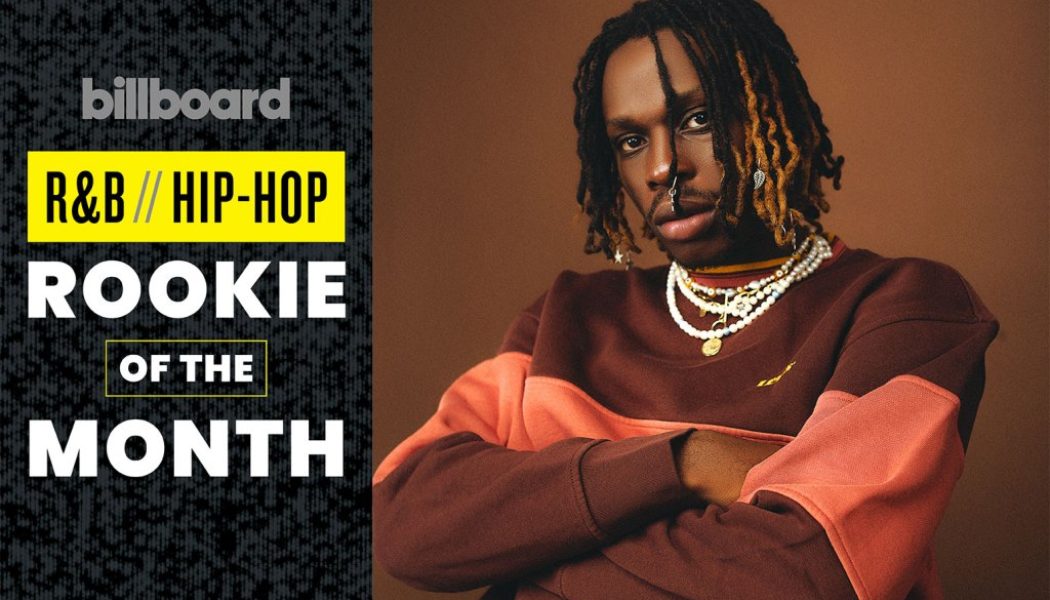
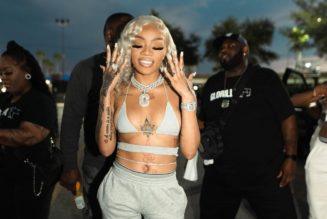


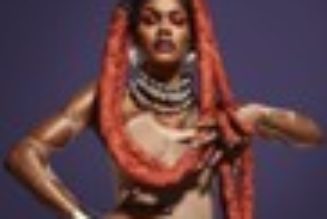

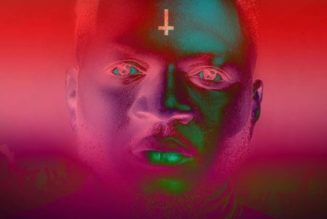
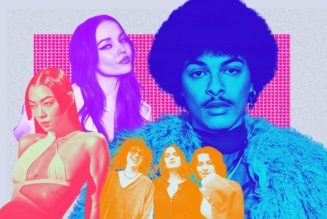
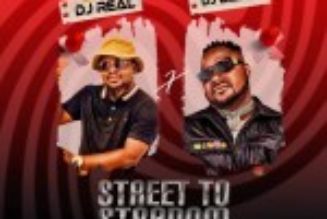
Tagged: entertainment blog, music, music blog, R&B/Hip-Hop, R&B/Hip-Hop Rookie of the Month